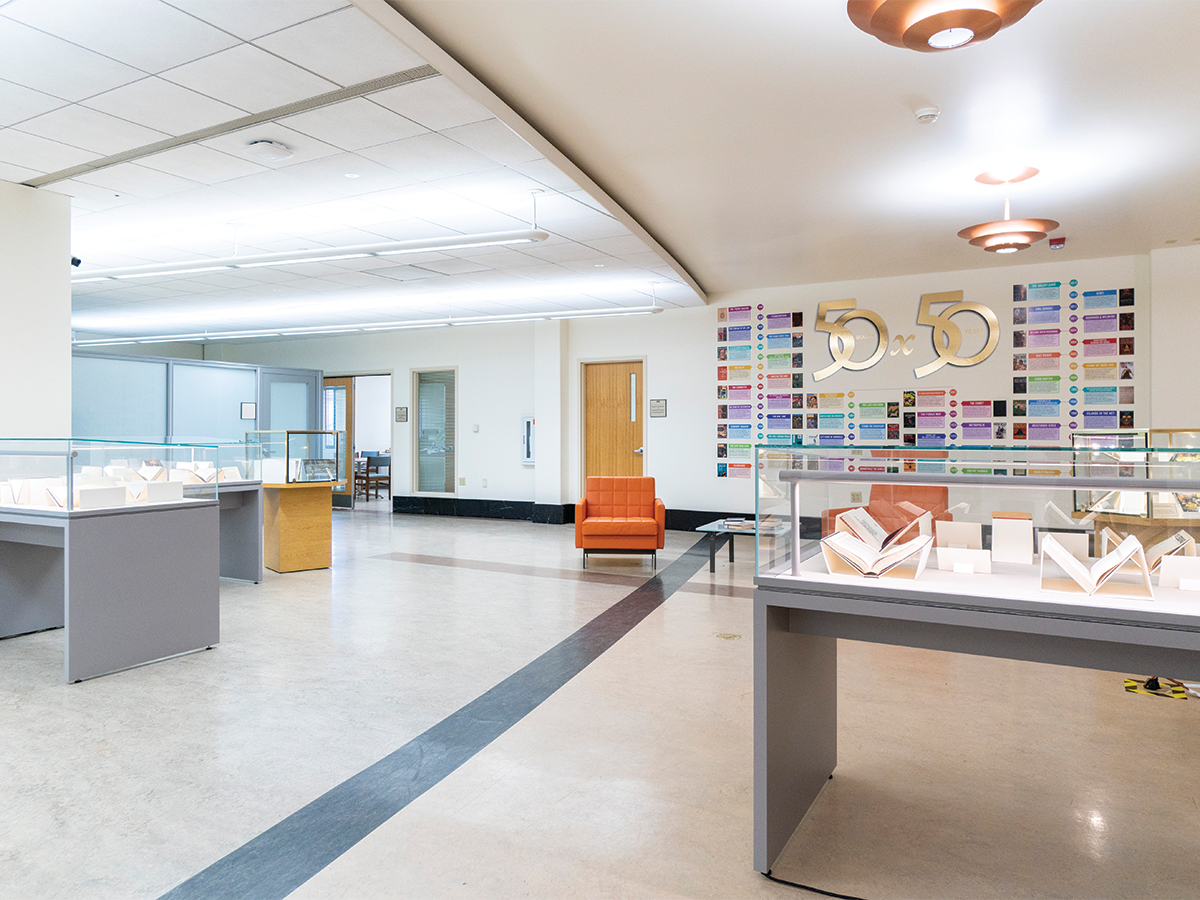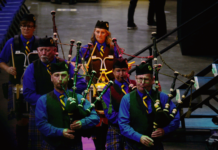
On the fourth floor of the Tomas Rivera Library lies UCR’s Special Collections & University Archive. Inside the archive are brightly lit cases of books in honor of the 50th anniversary of the creation of the Eaton collection, but the sci-fi and fantasy books on display make up only a small portion of the entire collection.
A science fiction fanatic’s wonderland, The Eaton Collection of is one of the world’s largest collections of science fiction, fantasy, horror, utopian literature and related genres. Currently, it features over 300,000 items, which includes a variety of books, pulp magazines, fanzines, shooting scripts from science fiction films, comic books, anime, manga and collectibles.
In 1968, then UCR University Librarian Donald Wilson acquired and recognized the potential of the 7,500 volume personal library of Dr. J. Lloyd Eaton. From there the collection grew in size under the curatorship of George Slusser, a comparative literature professor who later went on to teach the first science fiction studies courses at UCR. The current curator, J.J. Jacobson, continues to add to the collection and is now strongly pursuing collecting in the realm of afrofuturism and alternative futurism.
“The collection spreads out in a lot of different directions and sometimes we have to wrestle with that a little bit. It starts to go into what is science fiction or what is fantasy: how do we want to classify things? One of the biggest challenges also is moving away from white male dominant stories … there is a lot more to science fiction then what was represented in the fifties or sixties,” stated Andrew Lippert, the special collections processing archivist.
According to Lippert, the academic value of science fiction and the fantasy genre has been questioned for a long time. As a part of its mission to be an outstanding resource for research and study, The Eaton Collection began hosting the Eaton Science Fiction Conference in 1979. The conference is devoted to studying all aspects of science fiction as a literary genre and social phenomenon and was a stride forward in affirming science fiction as a field of study.
“Someone who is in the history department can use science fiction to ask what it is saying about culture and the time period it was created in. For example, (at The Eaton Collection) the pulp magazines are an interesting case study because we have full volumes of them; you can look at them from a historical perspective and see the real change over time within publishing and advertising,” said Lippert.
Since the introduction of The Eaton Collection, UCR has become a center for science fiction studies. Courses in science fiction and related topics are taught by UCR faculty in a range of disciplines. UCR also runs the Speculative Fictions and Cultures of Science (SFCS) graduate program, where students can explore intersections among speculative fiction, science and technology studies, and traditions of speculative thought.
The Eaton collection is available for viewing Monday through Friday from 11 a.m. to 4 p.m. The entire collection can also be accessed using the library’s online catalog. Researchers need to register in the Special Collections Request System and are advised to request materials at least 24 hours in advance to avoid delays.







